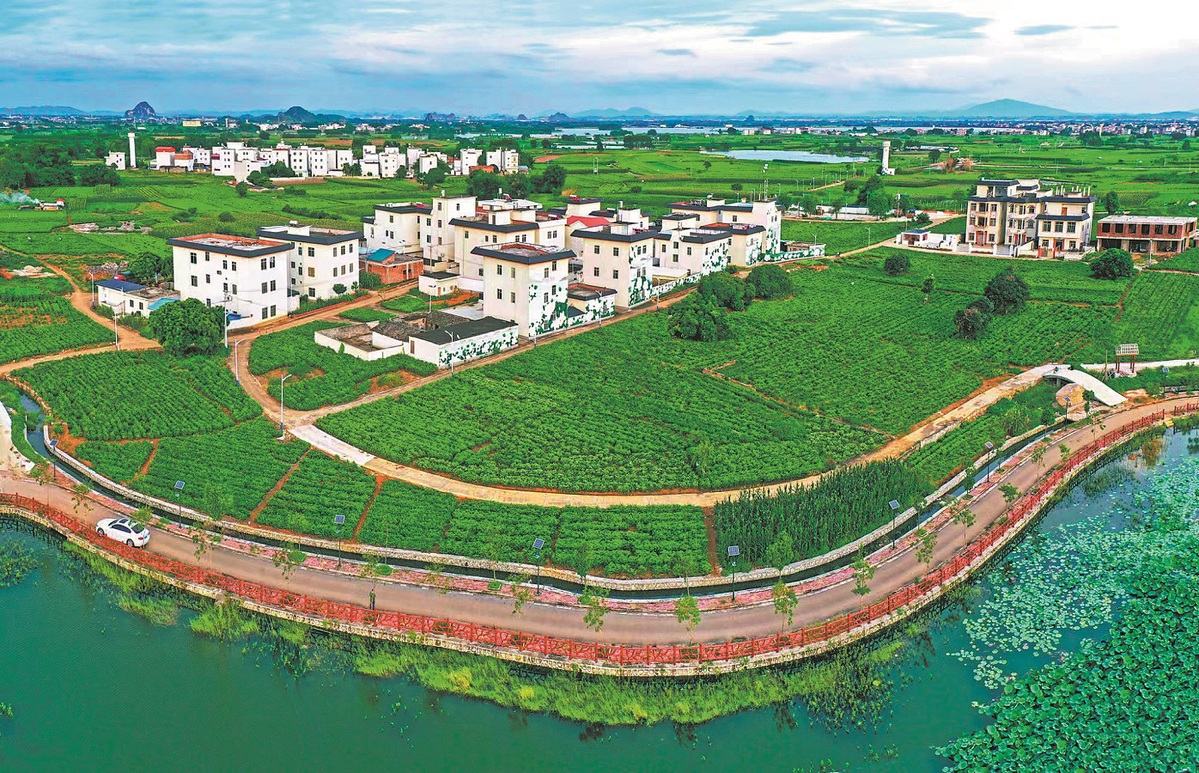Hengzhou's jasmine flower industry now in full bloom
From special drinks to high-tech AI cultivation, city reaps agricultural benefits


Editor's note: In a series of reports titled "Claims to Fame", China Daily looks at how some regions have earned wealth and recognition through specific products to advance economic development.
At the jasmine trading market, Yao Yunlian paused beside a row of buyers seated behind a simple desk with an electronic scale on it, and piles of jasmine flowers stacked high.
The sweet scent of freshly picked jasmine blossoms lingered in the air at the market in Shijing village, Hengzhou city, Guangxi Zhuang autonomous region.
Yao stepped forward and listened to the prices being called out, with bids being placed rapidly like on the stock exchange. Starting at 7 am, she had picked around 6.5 kilograms of jasmine flowers that day. In the afternoon, she checked the latest prices on her phone via a WeChat mini program and headed to the market. She ended up pocketing 275 yuan ($38) for her flowers.
A villager whose family has for generations grown jasmine flowers, Yao said there's a quiet satisfaction in this daily routine. She gathers the flowers in the morning, and by the evening has cash in her hand.
"Some of the old roots in our family's jasmine fields have been growing for over 30 years, and we just planted a new batch a few months ago," Yao said of the family's 0.33 hectares of land.
"When the flowers are at their peak, I can pick more than 20 kilograms in a single day," she said, a broad smile creasing her suntanned face. The hard work pays off, bringing in real income. "It's tiring, but worth it," she said.
From late April to October, farmers spend their days picking jasmine flowers. The city's harvest exceeded 110,000 metric tons in 2024. Like Yao, over 340,000 people in Hengzhou are involved in some aspect of jasmine cultivation, according to local authorities.
"Some farmers harvest jasmine during the day and also work at nearby companies, mainly tea drink producers, at night," said Cai Wanhong, Party secretary of Shijing village, adding that over 1,000 villagers work this way.
Local per capita net income reached 30,000 yuan in 2023 and rose to 32,000 yuan last year, he said.
"We've built new homes, bought cars, and can afford to send our children for better education," Cai said. "With daily earnings from jasmine picking, life is steady and fulfilling."
























